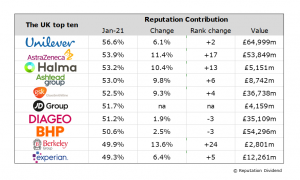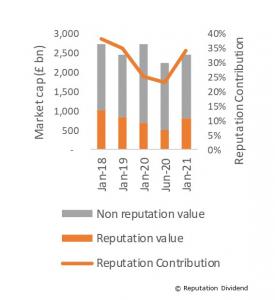February 15, 2021 (Global News Distribution) -
As tax season approaches, truck drivers, like members of any other profession, should put their paperwork in order to take advantage of lawful tax deductions. Businesses are eligible as well and Advanced Training Systems CEO John Kearney explains how.
If you’re a truck driver, you’re also a business concern, and eligible for a number of money-saving tax deductions. Whether you’re a truck owner/operator or an employee of another firm, you can deduct your cell phone charges, licensing fees, and other expenses from your declared taxable income. “Trucking isn’t just a job,” says Advanced Training Systems CEO John Kearney, “it’s a profession, and treated as such by the Internal Revenue Service. My advice to drivers, whatever their employment category, is simple: learn the rules, keep orderly records, and get your returns in on time.” The IRS requires you to keep receipts and for your business expenses for at least 3 years after the date of filing your return and longer in certain circumstances.
Kearney, whose company is a leading designer and manufacturer of virtual simulators for driver training, among other applications, notes that employee drivers and owner/operators will use different forms to report their income; if you’re in any doubt on this score, he recommends that you consult the IRS or a tax professional. In either case, however, truckers can and should deduct from their taxable income not only their cell phone, internet, and license renewal costs, but also required medical exams, truck repair and maintenance, association dues, food consumed on the road, and job-related personal products such as food storage, logbooks, flashlight, and electronic equipment such as a GPS.(1)
In addition to deductions for individual drivers, notes Kearney, economic incentives are increasingly being offered to the trucking industry as a whole. Although the motor freight industry is essential to the U.S. economy—over 70% of all American freight moves by truck(2)—its growth and future are endangered by a persistent and growing shortage of drivers. There are an estimated 50,000 fewer short- and long-haul truckers in the U.S. than are needed now, a number that could possibly triple by 2028.(3) To combat this shortage on a local level, the Ohio state legislature has passed a bill granting a tax incentive to Ohio companies that hire and train new truck drivers.(4) Similar measures, including a possible easing of visa restrictions for foreign drivers(5), seem likely as the situation worsens.
Meanwhile, the COVID-19 pandemic, which has closed stores and offices across the nation, in 2020 caused a year-over-year U.S. jump in ecommerce of more than 30%.(6) In response, global big-box and ecommerce retailers are building distribution centers all over the country to facilitate faster deliveries and shorter routes, creating hundreds of thousands if not millions of new jobs.
“We don’t know for sure how many of these new positions will be for drivers,” says Kearney, “but informally we know it’s a lot. We’re in touch with these companies, who are interested in simulation not only because it produces better, safer drivers, but because of the potential return on investment. Except for the very final stages of training, it eliminates the need to tie up a truck and a licensed driver. The simulator realistically reproduces every possible driving situation, including some—black ice patches on the road, a steering tire blowout—that you can’t train for any other way. It’s as necessary as simulation training for pilots, and for the same reasons: honing professional skills and saving people’s lives.”
The combination of aggressive driver recruitment, simulator training, continued growth in shipping, and heightened public awareness of the importance of the supply chain, says Kearney, is creating a new day for truckers and trucking. “The pay is improving, the conditions are improving, the technology is improving, and the industry is exponentially more inclusive than it was even five years ago. If you want a career with a wide-open future, there’s never a better time to look at trucking. Just remember,” he adds, “to save your receipts.”
About Advanced Training Systems LLC:
Advanced Training Systems (ATS) is a technology and engineering firm that has revolutionized the design and manufacture of high-tech simulator systems to improve training for operators of all types of motor-powered vehicles. ATS, the holder of multiple patents in its field, is dedicated to providing cutting-edge adaptive training at an affordable cost to all involved in the transportation industry, resulting in more qualified drivers/operators and safer streets. For more information, visit http://www.atstrainingsystems.com.
1. Klco, Alayna. “Truck Driver Tax Deductions: 9 Things to Claim.” Drive My Way, Drivemyway.com/Wp-Content/Uploads/2019/03/Untitled-1-3.Png, 20 Jan. 2020, drivemyway.com/blog/truck-driver-tax-deductions-9-things-to-claim/.
2. “11 Incredible Facts about the $700 Billion US Trucking Industry.” Business Insider, markets.businessinsider.com/news/stocks/trucking-industry-facts-us-truckers-2019-5-1028248577.
3. Della Rosa, Jeff. “Driver Shortage Persists amid COVID-19 Pandemic, Mixed Freight Demand.” Talk Business & Politics, 7 Dec. 2020, talkbusiness.net/2020/12/driver-shortage-persists-amid-covid-19-pandemic-mixed-freight-demand/.
4. Hlavaty, Kaylyn. “House Passes Bill to Address Truck Driver Shortage in Ohio.” WEWS, 21 Feb. 2020, news5cleveland.com/news/democracy-2020/ohio-politics/house-passes-bill-to-address-truck-driver-shortage-in-ohio.
5. Abt, Neil. “Fleets turn to immigration programs to find truck drivers,” FleetOwner, fleetowner.com/fleet-management/article/21704400/fleets-turn-to-immigration-programs-to-find-truck-drivers.
6. “US Ecommerce Growth Jumps to More than 30%, Accelerating Online Shopping Shift by Nearly 2 Years.” Insider Intelligence, 12 Oct. 2020, emarketer.com/content/us-ecommerce-growth-jumps-more-than-30-accelerating-online-shopping-shift-by-nearly-2-years.
Contact Author
KARLA JO HELMS
JOTO PR Disruptors(TM)
727-777-4621
DANIEL MUTTER
JOTO PR Disruptors(TM)
727-777-4621










